James McCabe, the Australian executive director of Cambodia’s Child Protection Unit (CPU), believes that protecting minors who can not protect themselves means being keenly aware of what exactly the threat is against those children.
“You’ve always got to keep your eye on the ball: always looking at what’s happening around the world and staying on top of it,” said McCabe, who has been in Phnom Penh since 2013 and had a chance to see the shifting tide of crime against children in the Kingdom. When speaking to the former police officer, it seems as though ‘heartbreaking’ is a recurrent word in his vocabulary, borne only out of sincerity.
In operation since 2013, the CPU is a joint initiative between the Cambodian Children’s Fund (CCF) and the Cambodian National Police which aims to crackdown on incidences of child abuse, long a blemish on Cambodia’s reputation. It’s the only one of its kind in the Kingdom and a response to harrowing incidences of crime that are often beyond the capacity of local police forces to fully investigate.
Early on January 1, the unit started the year off brightly with the official commencement of work for a new division: the Internet Crimes Against Children (ICAC) task force – the first created to specifically address online child abuse in Cambodia.
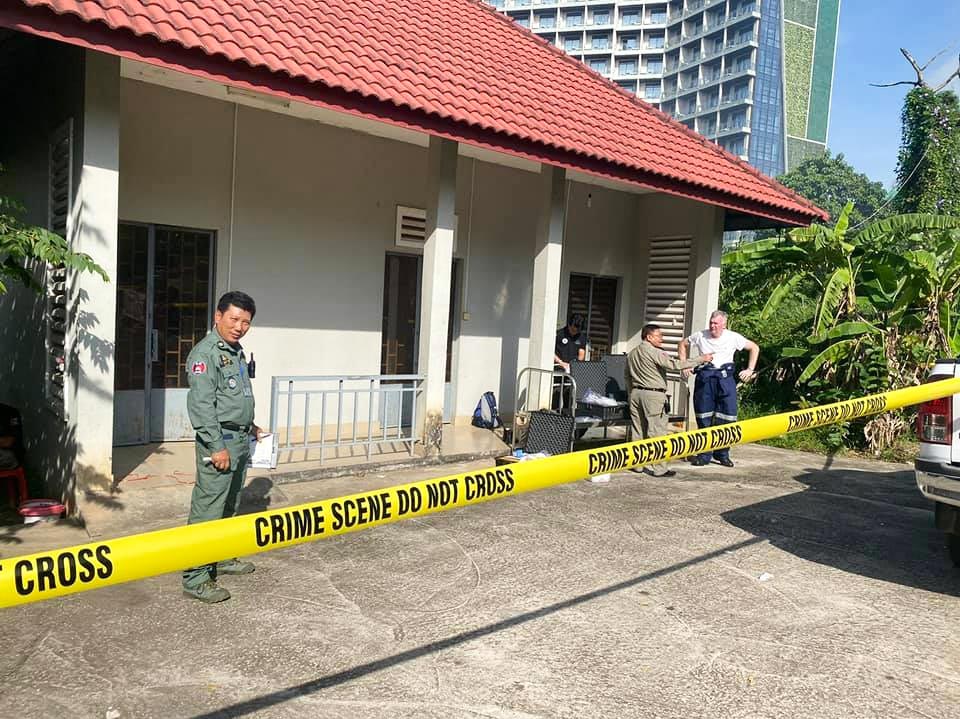
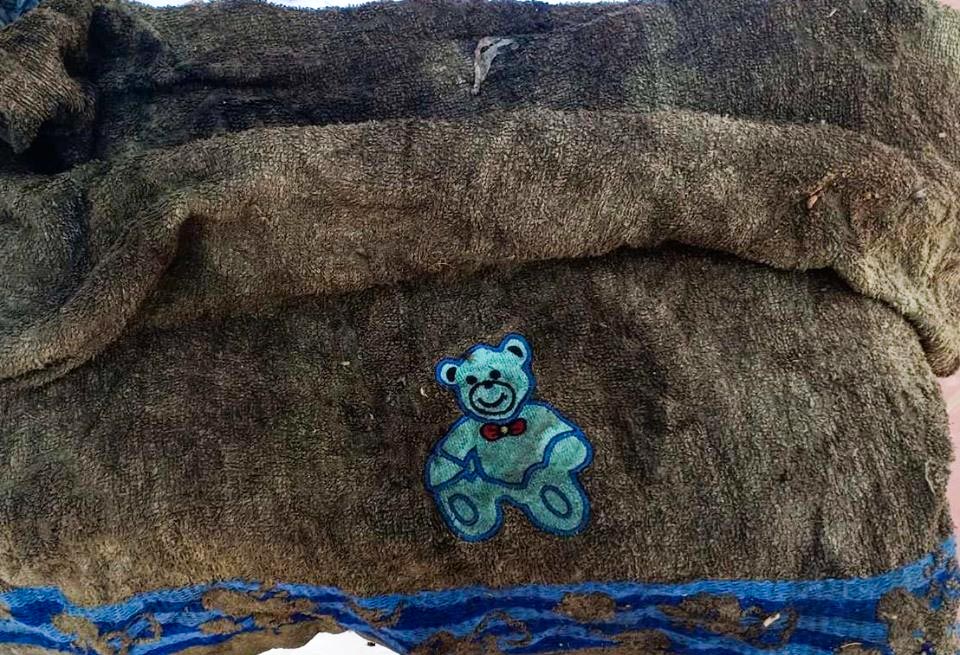
Task Force Juno, as the ICAC is also called, is devoted to combatting all forms of exploitation or abuse that occur against children online or involve technology. It will be working in conjunction with the Ministry of Interior’s Anti-Cybercrime Department on detection and prevention.
It’s a move that represents the changing face of how crimes are occurring, and the changing response of Southeast Asian governments.
Law enforcement is all about staying on your toes, and McCabe says that placing a strong focus on crimes against children committed using online channels is not just a bonus on top of the CPU’s pre-existing work – it’s absolutely necessary in modern-day Cambodia.
“The CPU today, it’s been a bit of a journey to get here,” said McCabe. “But we constantly assess where we’re going, what are the new crime trends, how things are changing in Cambodia, as they do.”
He said the Cambodian government has shown a great willingness to work with the CPU, which to him demonstrates a prioritisation of eradicating violence against children in the Kingdom.
“These are issues being faced by developed countries all around the world. And now Cambodia has realised, and understands that this is a problem that we’ll be facing,” he said.
The ICAC is the fourth unit of the CPU, which also has departments devoted to homicide, forensic services, and victim and family support. Each time the CPU receives a call about a child who has been harmed or killed, they send people to the scene to access the services the child and family may need and deliver them, from immediate medical evacuation out of the country to food packages to support the family while a trial is ongoing.
The CPU as a whole responded to 274 cases in 2019, with an average of 280 a year since its foundation seven years ago. Their arrest rate last year for those cases was 87% – higher than that of many developed countries – which McCabe calls “a real credit to the commitment” of both the government and the police.
“It’s a great message. If you rape or harm a child, you are going to get arrested. You will be prosecuted. Which is where we need to be.”
Over the past decade, Cambodia has experienced an explosion of internet infrastructure and usage. As of 2019, 98.5% of the population are internet users, and according to the Telecommunications Regulator of Cambodia, the Kingdom now has more active SIM cards than people, with smartphone devices increasingly cheap and widely available.
While no similar study has been conducted in Cambodia, a survey conducted by TotallyAwesome – a “kidsafe digital media company” in the Asia Pacific region – found that as of late 2018, 90% of children between the ages of four and 12 in nearby countries like Indonesia, Vietnam, Thailand, Singapore and Malaysia use at least one social media platform.
While this democratisation of the internet is a positive development in many respects, with this escalation in its availability has come very little education on the dangers it poses for vulnerable children.
Europol, the European Union Agency for Law Enforcement Cooperation, spotlights mobile connectivity and growing internet coverage in developing countries as issues contributing to increased online crime. Inevitably, among this growing crime is online child exploitation, a “constantly evolving phenomenon … shaped by developments in technology”, according to the organisation.
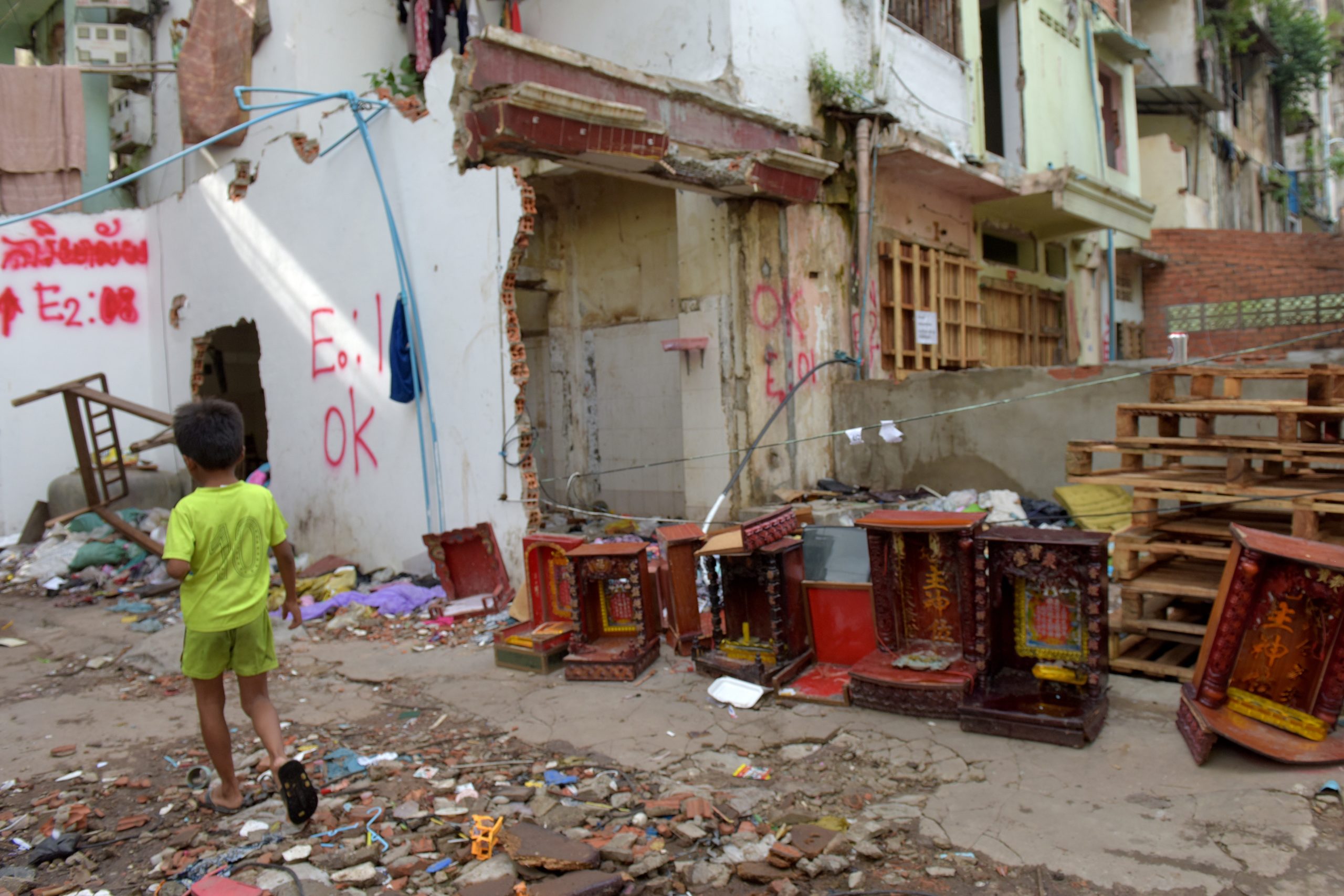
Action Pour Les Enfants, more commonly known as APLE, is an NGO concerned with child exploitation established in Phnom Penh in 2003. Their initial role was to assist the police with investigations and provide pro-bono support to families, with that later radically expanded to monitoring and reporting on changes in types of crimes against minors and the modus operandi of offenders.
Two years ago, their research on the topic moved them to open their own division dedicated to investigating online crimes against children. Seila Samleang, the head of APLE’s Cambodia office, says that they have observed a decreasing number of incidences of offline exploitation and sex tourism. Though this seems positive at first glance, they made a crucial observation: that, disturbingly, the crime is moving elsewhere.
“For the last two or three years, we have a strong indication that [grooming taking place offline] was not happening much anymore due to the fact that technology is playing a significant role in facilitating, for example, grooming and getting access to children,” said Samleang. “So sex offenders don’t have to get exposed to the public. They can communicate with children online.”
What we’re certainly seeing is lots of kids [in Cambodia], as they are in the rest of the world as well, accessing the internet – but parents not necessarily understanding the potential risks, and perpetrators taking advantage of that
Mark Kavenagh, ECPAT’s head of research and policy
But while parents may know to teach their children the basics that have been circulating in cautionary tales for years – such as not adding random friends on Facebook – new games and platforms are constantly cropping up that are assumed to be safe because their primary purpose is not communication.
A lack of education also means that parents, relatives and friends misunderstand the potential of a photo to be sexualised and shared outside of private circles, Samleang said, creating more abusive material online to be taken advantage of. A picture of a child in a bathtub can turn into a piece of content on a commercialised website, for example, and becomes hard to legislate or prosecute.
As Mark Kavenagh, the head of research and policy at ECPAT, a child sexual exploitation NGO founded in Bangkok, explained: “What we’re certainly seeing is lots of kids [in Cambodia], as they are in the rest of the world as well, accessing the internet – but parents not necessarily understanding the potential risks, and perpetrators taking advantage of that.
“We always argued that technology is actually fantastic and that people have it, because they have available information that they never used to have. We talk about the internet being kind of almost a great equaliser … But with that there are obviously opportunities for exploitation, for people to use it for the wrong reasons, and that’s what we’re seeing.”
Part of the problem of online abuse is that the quantitative side of “what we’re seeing” is hazy at best. A lack of concrete data means that, even as researchers uncover new issues and methodologies and publish papers and news reports on those findings, the crime is constantly evolving. The black hole of knowledge is such that law enforcement – worldwide and in Cambodia specifically – can’t even really know how big the problem is.
According to McCabe, this isn’t an issue with crimes against children that occur in person. The CPU collects data on which crimes have occurred, which communities they have occurred in, and even factors like whether drugs and alcohol were involved. But with online crimes, which occur across national boundaries with perpetrators enjoying a greater degree of anonymity, getting a grasp on the stats is more slippery.
ECPAT International is trying to remedy this, and are currently conducting research as part of an in-depth report on the state of online crimes against children in 14 countries in Asia and Africa. Chosen for various reasons – from concerning trends in child abuse to a knowledge gap on the issue – Cambodia made the list, as did the Philippines, Malaysia, Indonesia, Vietnam and Thailand. The full report will not be released until early 2021, but some of the preliminary results will start coming out from mid-2020 onwards.
“I think there’s still a big gap in understanding, still a severe lack of knowledge in general about this issue. Research alone is not enough. It demonstrates some notion of the problems … but it doesn’t give, you know, comprehensive information about the whole issue. So that’s one thing,” said Samleang.
“But I think through the collaborations and all those efforts with the government, we have seen that there has been increasing interest from more and more government agencies. At least they come out and say, ‘we don’t know enough about this problem. And we want to know more’.”
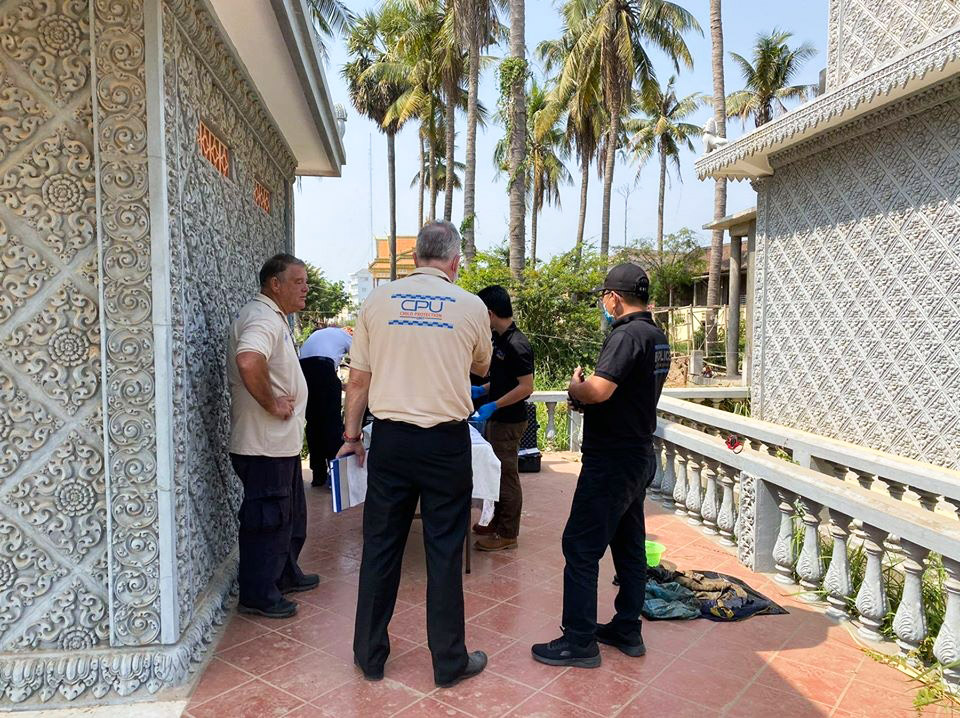
The CPU only dealt with a handful of cases involving technology last year: a notable case was the arrest of nine men in Siem Reap after they allegedly distributed child pornographic material online. McCabe expects that number to rise significantly with the ICAC’s increased capacity for looking specifically at this type of crime, as well as the fact that they now receive and sift through case files pouring in from international agencies scouring social media.
But McCabe said that besides all this, the ICAC’s “core business” will be prevention and awareness, something that goes hand in hand with reporting crime.
He insists that public confidence plays a huge role in the functioning of the criminal justice system, so that when child survivors of violence believe that others will care about what happened and want to bring their perpetrator to justice, they are more likely to speak up.
“A lot of our victims are from impoverished families,” he explained. “And in some cases, there’s been a motivation report, or not, because it’s been a family member or the breadwinner.” In these instances, both confidence in the criminal justice system and support for the family becomes crucial.
APLE is trying to lower barriers to reporting as well, and has created an online hotline with the tagline “Report it. Don’t ignore it” for reporting child sexual abuse material, whether witnessed on a website, social media, in a chat room or over email. People with an issue to report can also call* to speak to an analyst who is able to advise on the content.
“This is why the hotline was actually put in place, just to help the public to understand what they should look for and what kind of information they should have to report,” Samleang said.
While much is being done to try and eradicate child exploitation in Cambodia, advocates stress that there can be no truly effective action without the firm implementation of the law, especially when it comes to online crimes.
“I think in some places the legislation hasn’t necessarily caught up to defining the crimes. So if the crime itself is not carefully defined, the police and others have a tough time pursuing it,” said Kavenagh.
One of the projects ECPAT has been involved in is supporting the ASEAN region to develop consistency in legislation on online child sexual exploitation – mainly ensuring that different types of child sexual abuse material and behaviours are clearly defined.
Kavenagh flagged grooming and live-streaming as specific online practices that need careful oversight. Europol also flags live-streaming as a disturbing trend in online crime against children, witnessing a rise in perpetrators encouraging children to bare their bodies online through the anonymous security blanket of the internet.
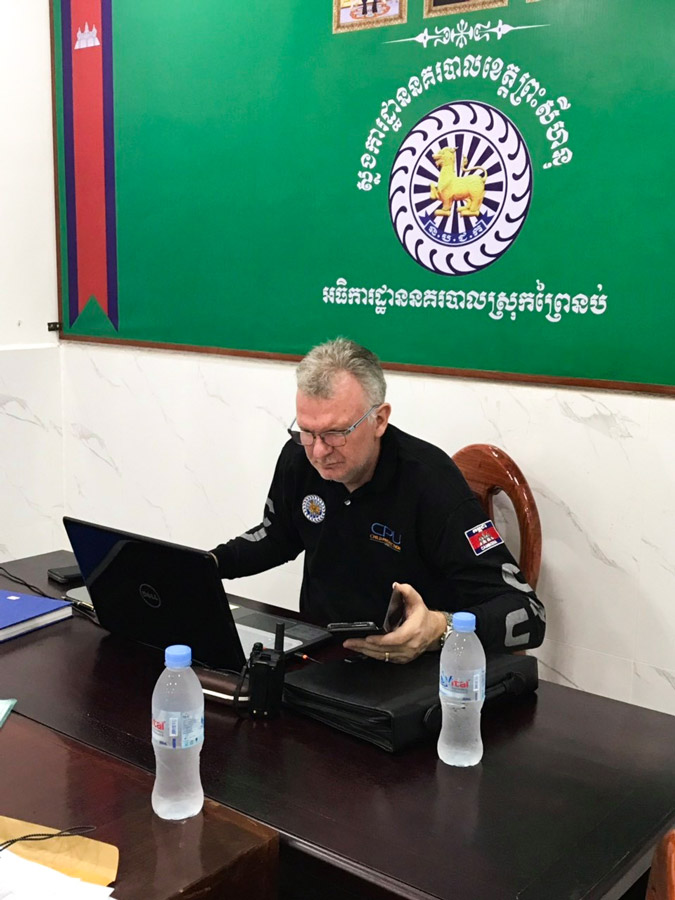
The CPU’s primary focus is the child’s journey through the judicial system. From the worst day of their life, when we’re notified about a crime against a child, right up to conviction
James McCabe, executive director of the CPU
Samleang flagged the lack of legislation on the grooming of children – as well as the difficulty of even defining what grooming is properly – as posing a danger to vulnerable minors. Even offline, grooming is not currently a crime in Cambodia.
“When there is a notion of someone trying to groom children for suspected sexual abuse, that cannot be investigated, because there is no substantial incriminating evidence for the police,” he said.
A new draft of legislation addressing all manner of cybercrimes is currently being drafted, and as recently as December the Ministry of Interior had the latest of 20 such meetings while conducting their “preliminary review”. They aren’t sure, however, when this legislation will be completed.
“So obviously, the Ministry of Justice and the Cambodian government, I have no doubt, will review the laws as technology progresses and if and when these crimes become more prevalent,” said McCabe. “They’re always open to looking at what laws are needed to ensure the Cambodian police are in a position and the Cambodian judiciary in a position to combat these crimes.
“But that’s something that’s occurred around the globe. All governments throughout the world have had to update their laws and change their laws to better address technology.”
So as Cambodia pushes forward in addressing online crimes generally, CPU’s core focus will remain on the children – and right now, McCabe is still confident that the laws in place will be enough to push back hard against offenders.
“A lot of people hear about our forensic and investigation abilities, but the CPU’s primary focus is the child’s journey through the judicial system. From the worst day of their life, when we’re notified about a crime against a child, right up to conviction,” said McCabe.
Meanwhile, the newly-created ICAC are set to hit the ground running and begin sifting through the depths of the internet.
*Those wishing to report content they suspect depicts child exploitation can call APLE’s hotline at 092-311-511 for further advice.


